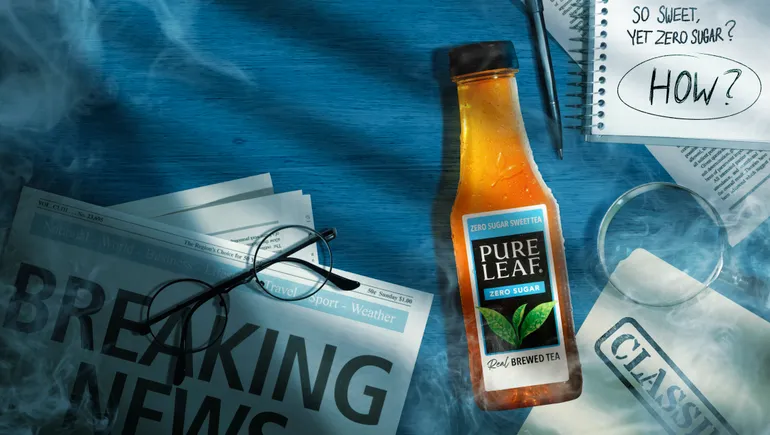PepsiCo, Unilever launch Pure Leaf Zero Sugar sweet tea

Dive Brief:
- Pure Leaf tea is entering the zero-sugar sweet tea category with its latest launch, according to the Pepsi Lipton Partnership, a joint venture between PepsiCo and Unilever.
- The tea, which is reaching store shelves this month, is sweetened with a blend that includes sucralose and acesulfame potassium. Julie Raheja-Perera, general manager of North America for the Pepsi Lipton Partnership, said in an interview that 91% of liquid refreshment beverage consumers are interested in zero-sugar products.
- Pure Leaf is the latest beverage brand to introduce a no-sugar offering as more consumers look to curtail sugar or calorie consumption to improve their health. The global zero-sugar beverages market is forecast to top $13 billion by 2033, a compound annual growth rate of 14.7%, Future Market Insights estimated.
Dive Insight:
Raheja-Perera said the new Pure Leaf tea offering will help the brand satisfy additional consumer occasions and needs. She noted that the “top barrier” preventing people from buying a tea brand is the absence of a zero-sugar alternative.
“This was a key one that we’ve been looking at for some time. We are looking to attract new people into our brand that otherwise may have [an interest in] zero sugar or wanting something with zero calories,” Raheja-Perera said. “Now, we have that proposition which we’ve never had.”
The Pepsi Lipton partnership already sells Lipton with zero sugar in Europe. It’s the first no-sugar launch in the U.S. for the 32-year-old Pepsi Lipton Partnership. Raheja-Perera declined to provide details on sales projections for the no-sugar extension, except to say it would lead to an “incremental penetration opportunity for the brand.” She also added that there was “very high purchase intent” among consumers who tested the product.
The decision by Pure Leaf to move into zero-sugar sweet tea is hardly surprising. Consumers have been curtailing their sugar intake for several years as they pay closer attention to their health and what goes into their bodies. A Kerry study in 2023 noted that about seven in 10 respondents said they are reducing their sugar consumption to live a healthier life.
Pure Leaf is the second best-selling brand in the $4.6 billion canned and bottled tea category, according to Circana, a Chicago-based market research firm. For the 52 weeks ended Feb. 25, Pure Leaf narrowly trailed Arizona with $989 million in sales.
The new Pure Leaf Zero Sugar Sweet Tea joins similar offerings on the market from both large beverage giants and smaller upstarts. Coca-Cola, through its Gold Peak brand; Zevia and Milo’s, among other beverage brands, sell zero sugar options.
Source: fooddive.com

